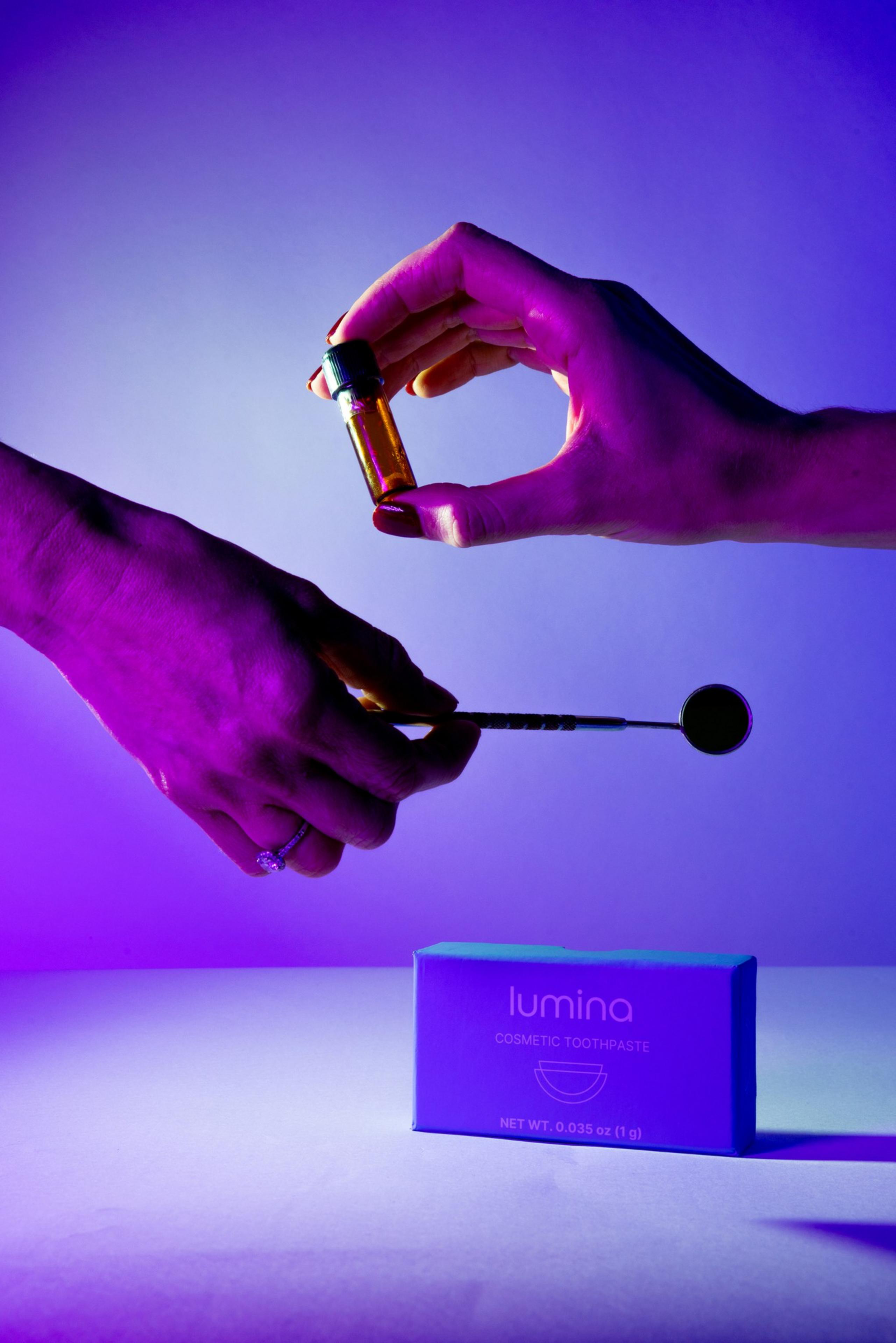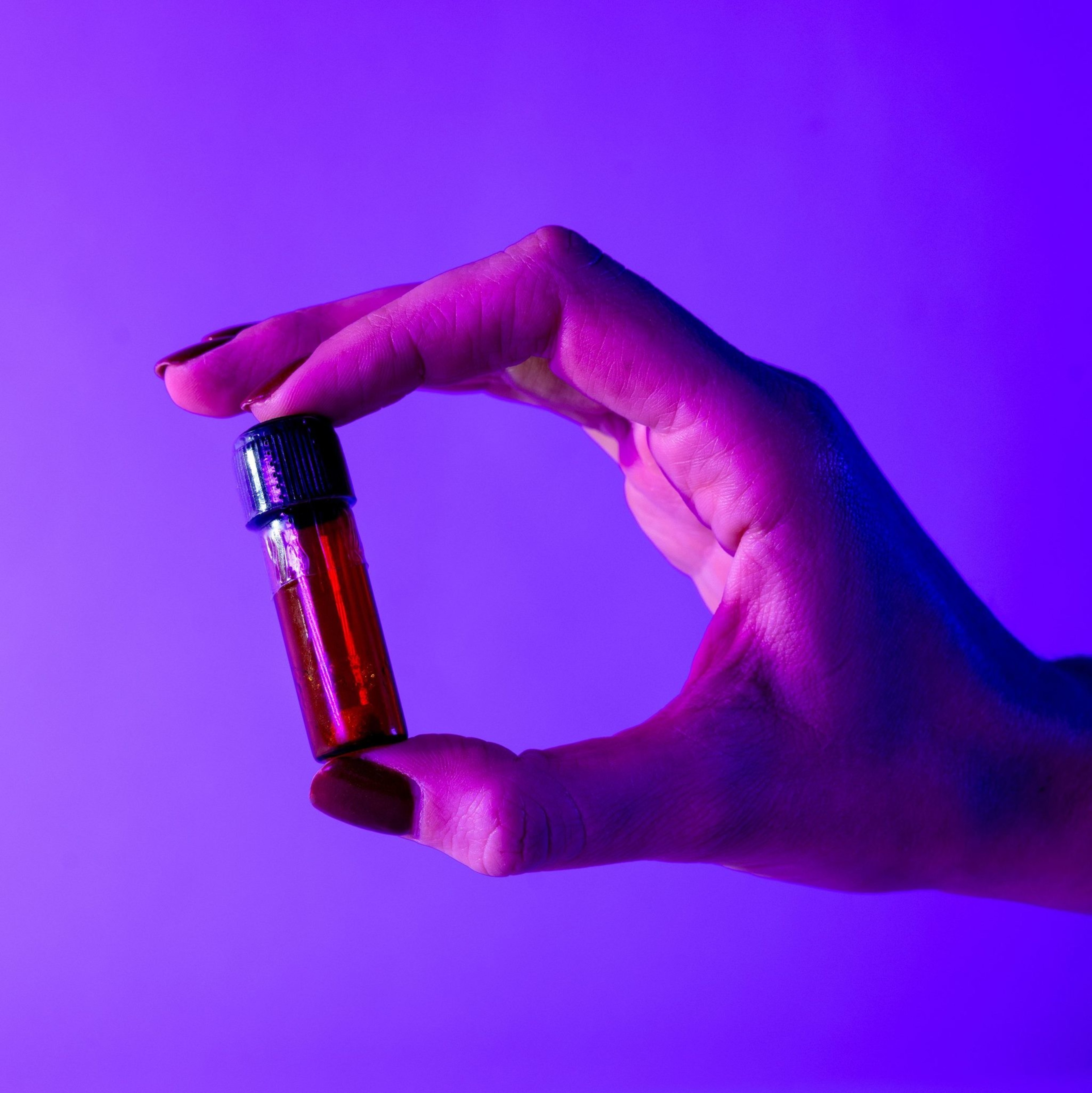In January of last year, a handful of tech elites flew to Honduras to try a single-use toothpaste that wasn’t available in the U.S. Shelling out up to $20,000 (opens in new tab) for a dose, they hoped the genetically engineered dental rinse might permanently ward off cavities. This was an early version of Lumina Probiotic, which recently shipped its first consumer batch — priced at a more reasonable $250 — to 500 early adopters, including me.
The theory behind Lumina is that certain harmful bacteria in the mouth contribute to cavities, and that by introducing a supercharged bacterial strain, you might be able to permanently transform the oral microbiome to stop cavities from forming.
I have suffered through too many hours in a dentist’s chair to count, so in late 2023, when I heard rumblings on Telegram and Discord of this single-use “cavity cure,” I took notice.

It’s very much a “big if true” idea — albeit one that is untested in humans and unapproved by government regulators. But that didn’t stop those early tech elites from trying it last year, nor 1,596 people from signing up the first month preorders became available. I placed my order and waited nine months for the toothpaste to arrive.
Would it work? Would it make cavity fillings a pain of the past? Could it bring much-needed care to the dental deserts of rural America? No one could be sure. But, as Erik Meijer, an engineer for a stealth Palo Alto startup, put it on LinkedIn (opens in new tab) after making a preorder, “sometimes things *really* sound too good to not try.”
The enormous interest in Lumina is indicative of how residents of the Bay Area are increasingly willing to ditch the mainstream and roll the dice on experimental fringe products. It’s a mindset that’s shared by the nation’s new health secretary, Robert F. Kennedy Jr. and the Trump Administration’s MAHA commission (opens in new tab), and one that has fueled the flourishing underground trade in raw milk, ivermectin, imported Japanese sunscreens, and European baby formula.
Now, it seems, it’s time for toothpaste to get the full MAHA treatment.
‘Success is not guaranteed’
It was only two years ago that Lumina Probiotic CEO Aaron Silverbook, a Bay Area engineer and self-identified “rationalist,” (opens in new tab) was going through old science papers and came upon a description of a unique “cavity vaccine” developed in the 1980s by Florida dental professor Jeffrey Hillman.
Hillman had identified a strain of Streptococcus mutans bacteria on students’ teeth that appeared uniquely resistant to producing lactic acid, which can eat away at tooth enamel and cause cavities. He reasoned that getting that strain of bacteria to colonize the mouth and drive out other bacteria would lead to fewer cavities.
Though Hillman created a company to spin his academic work into a consumer product, he never brought a toothpaste to market, a failure he attributed to onerous testing requirements from the FDA, such as enrolling 15 subjects, all under age 55, with full sets of dentures.
In 2023, Silverbook founded Lantern Bioworks and licensed Hillman’s intellectual property, creating Lumina Probiotic with backing from angel investors. (Sam Bankman-Fried’s Future Fund promised $120,000 but never delivered.) “A single one-time painting of the bacteria onto the teeth will basically prevent you from getting cavities,” Silverbook said in a 2023 podcast interview with Daniel Filan (opens in new tab).
Silverbook was up-front about the untested nature of the product. “Fewer than 15 people have actually had this in their mouths already, and success is not guaranteed,” he wrote on Manifund, (opens in new tab)a crowdfunding platform for experimental projects. Noting that there had been no human trials, he was clear that the data from tests with mice might not apply. “Animal studies do not always translate to human efficacy, regardless how compelling,” he warned.

The hype cycle speeds up
Despite the dearth of studies, Silverbrook’s rationalist peers were excited about the possibilities of Lumina. The buzz spread from group chats to the Less Wrong message board (opens in new tab) to the hyperpopular Astral Codex Ten newsletter (opens in new tab) and other rationalist substacks, which led to posts on social media and, eventually, mainstream news stories.
Cremieux Recueil, a Bay Area philosopher, wrote a whopping 7,600-word blogpost (opens in new tab)that closed by endorsing the toothpaste to his more than 18,000 subscribers. “The scourge of poor dental health that has wracked humanity for 10,000 years might soon be behind us,” he wrote. “We now have the tool to make a long-time human plague disappear. Let’s use it.”
Microbiologist Devon Stork, cofounder of Pioneer Labs, a San Francisco startup engineering microbes to terraform Mars, was all in. “Looking through the literature,” he commented on Astral Codex Ten’s substack post, “this is ready for human testing, where I expect it to have precisely zero side effects.”
Recueil’s essay inspired a New York Times (opens in new tab) op-ed about the growing embrace of DIY medicine. “The pandemic experience does seem to have … given way to a new age of medical libertarianism,” wrote science journalist David Wallace-Wells, who was intrigued by Lumina’s promise yet worried about what it could portend for the future of medical care. “It is nevertheless disorienting to find myself, reading about Lumina, in the position to decide, on my own, whether it’s worth it or safe to give a novel bacterium a permanent home in my microbiome.”
To some, the risks of an untested treatment are too great. Trevor Klee, president of Highway Pharmaceuticals, wrote a Substack warning about Lumina (opens in new tab). “At the very least, this is a great way to give yourself the digestive equivalent of continually taking antibiotics (i.e. diarrhea and indigestion),” he wrote. “There are scientific reasons to believe that Lumina’s product can be unsafe and ineffective in humans.”
Manifund CEO Austin Chen, who has invested in both Lumina and Highway Pharmaceuticals, defended the toothpaste. “I think you’re jumping the gun here,” he commented on Klee’s post. “You’re imputing motives to Aaron/Lumina, which make it harder for both you and them to think clearly about the issue.”
Chen was among the first people to try the toothpaste last spring, along with Yishan Wong (opens in new tab), the former CEO of Reddit and an investor in Lumina, and Patri Friedman, founder of The Seasteading Institute.
“Lantern Bioworks isn’t really claiming that this thing cures cavities, but they can sure make all the research available and let you decide for yourself,” tweeted Wong. “I literally put my money where my mouth is.”
A product pivot
Though many early adopters were unreserved in their enthusiasm, the company has taken steps to downplay some of its proponents’ more elaborate promises. Claiming that Lumina could treat or prevent cavities would reclassify the product as a drug, per FDA rules, meaning Lantern Bioworks would need clinical trials and premarket approval before selling it to consumers. An early pitch deck called Lumina a “one-time cavity inoculation,” but the company has since scrapped all health claims in order to avoid FDA scrutiny.
Now Lumina Probiotic is marketed as a cosmetic toothpaste designed to “protect enamel and balance oral pH,” according to a company spokesperson. As such, it falls into a regulatory gray area — one that includes multivitamins (opens in new tab) and fish oils — for health-related products that do not require FDA approval. “It is not intended to mitigate, treat, or prevent any disease. Lumina is intended to help maintain dental hygiene,” the spokesperson said.
Justin Merritt, whose lab at the Oregon Health & Science University investigates the molecular and cellular biology of the oral microbiome, and who has consulted for Lumina, said the more modest messaging doesn’t mean the producers don’t believe in the miracle nature of their product. “This is a perfect example of science progressing faster than regulation,” he said.
Wenjun Zhang (opens in new tab), a professor of biomolecular engineering at Berkeley who is not involved with Lumina, urged caution about using probiotic treatments that haven’t been through rigorous human trials. She has done research on a different strain of Streptococcus mutans bacteria (opens in new tab) and found that in therapeutic uses, it could have unintended negative consequences. She worries this could be true of Lumina’s probiotic as well.
Until there are human trials on Lumina, she said, “it’s still best to brush and floss, and any probiotic is just supplementary.”
Lumina is planning to run efficacy studies in the near future (not required for cosmetic products), but will not publish any of its data, in order to protect company IP, a spokesperson said.
Trying the toothpaste
Whether Lumina’s bacteria truly can revolutionize oral health — and whether the federal government’s RFK Jr. mode of regulation may change how it is marketed — is unclear. In the meantime, those who have tried it wait to see what happens.
Take Ryan Abel (opens in new tab), a software engineer from Austin who has a history of bad dental health. He applied the consumer version of Lumina toothpaste a few weeks ago. He isn’t worried about unintended risks. “I am not a biologist,” he said. “I’m relying on people more knowledgeable than me.”
Or Tristan Roberts, the San Francisco-based founder of Research Collective (opens in new tab), who tried a complimentary dose of Lumina in January 2024 in Honduras. He had a history of cavities, he said, but has been cavity-free since applying Lumina and is “cautiously optimistic.”
I am, too. When my home kit arrived in January 2025, I followed the simple instructions: Fill the vial with warm water and shake to activate the bacteria, vigorously brush teeth (do not use fluoride), put the Lumina liquid in your mouth, swish while brushing for three minutes, then spit and rinse.
There was so much liquid that some dribbled out while I brushed. It tasted like sweet, watery oats.
Post-application, I popped a blue Jolly Rancher in my mouth, per instructions. “Sugar is food for the probiotic, so consuming something sweet following application can be helpful,” a spokesperson explained. “However…a user’s typical diet is likely sufficient.”
And now … I wait.
Am I protected? Did the bacteria colonize? Lumina plans to offer mail-in mouth swabs soon, so I can check if the bacteria are even active in my mouth. But in the meantime, I have no way to know. Only time, and my dentist, will tell.